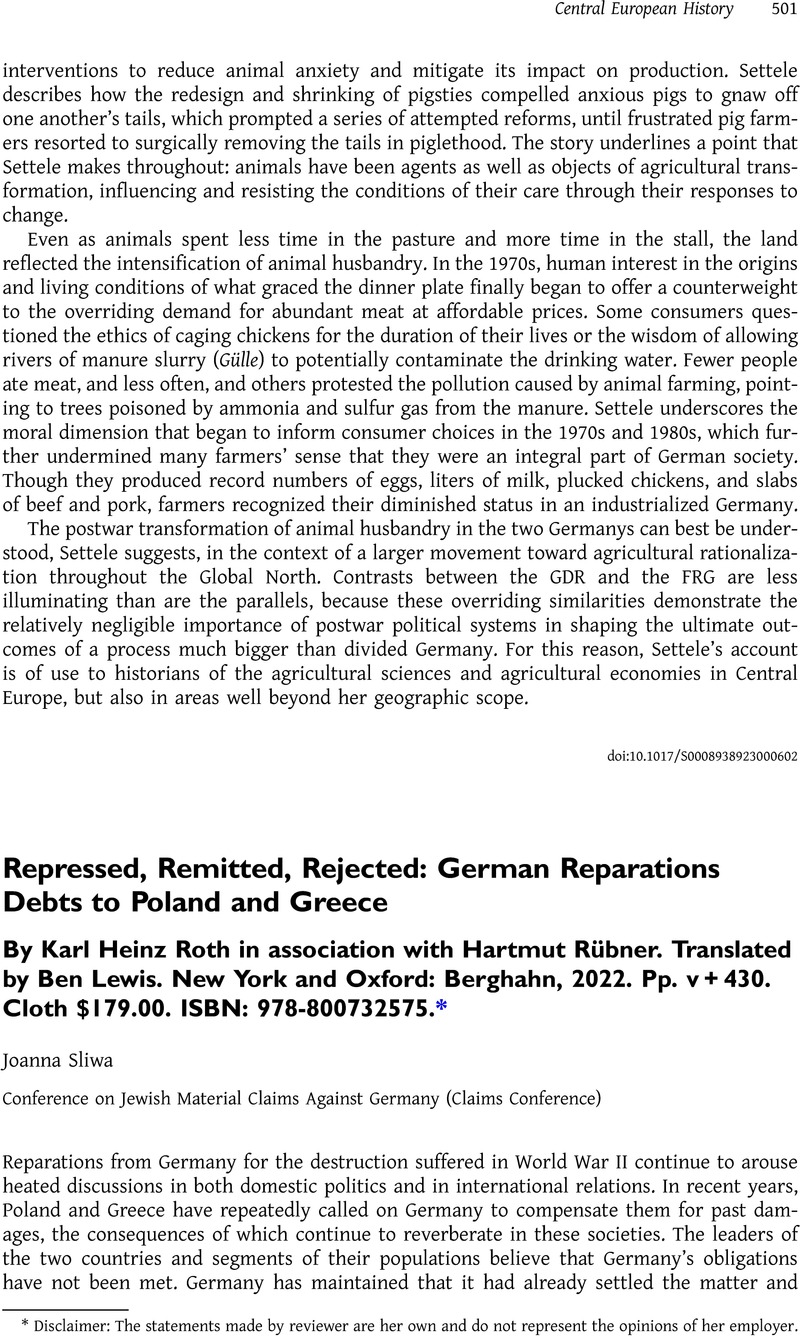No CrossRef data available.
Repressed, Remitted, Rejected: German Reparations Debts to Poland and Greece By Karl Heinz Roth in association with Hartmut Rübner. Translated by Ben Lewis. New York and Oxford: Berghahn, 2022. Pp. v + 430. Cloth $179.00. ISBN: 978-800732575.
Review products
Repressed, Remitted, Rejected: German Reparations Debts to Poland and Greece By Karl Heinz Roth in association with Hartmut Rübner. Translated by Ben Lewis. New York and Oxford: Berghahn, 2022. Pp. v + 430. Cloth $179.00. ISBN: 978-800732575.
Published online by Cambridge University Press: 08 November 2023
Abstract
An abstract is not available for this content so a preview has been provided. Please use the Get access link above for information on how to access this content.

- Type
- Book Review
- Information
- Copyright
- Copyright © The Author(s), 2023. Published by Cambridge University Press on behalf of Central European History Society of the American Historical Association
Footnotes
*
Disclaimer: The statements made by reviewer are her own and do not represent the opinions of her employer.


